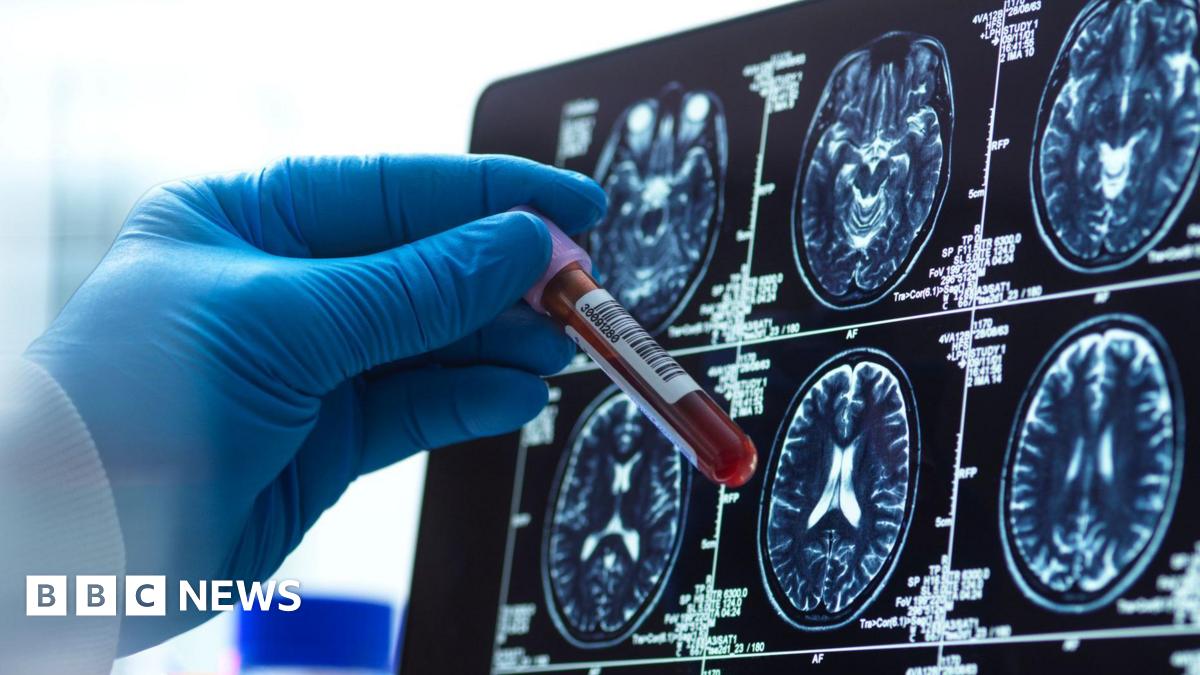Summary
More than 1,000 people across the UK with suspected dementia are to be offered a blood test for Alzheimers disease which it is hoped could revolutionise diagnosis of the disease.
The blood test can detect biomarkers for rogue proteins which accumulate in the brains of patients with the condition a…
Source: BBC

AI News Q&A (Free Content)
Q1: What is the significance of blood tests in the early diagnosis of Alzheimer's disease?
A1: Blood tests for Alzheimer's disease can detect biomarkers related to amyloid plaques and tau proteins, which are indicative of the disease. These tests offer a less invasive, cost-effective, and accessible means of diagnosis compared to traditional methods like cerebrospinal fluid analysis or PET scans. Recent studies have shown that blood-based biomarkers could enhance early detection, allowing for timely intervention and better management of the disease.
Q2: How does the new blood test for Alzheimer's work in detecting biomarkers?
A2: The Alzheimer's blood test works by identifying specific biomarkers associated with the disease, such as amyloid beta and tau proteins, in the blood. These biomarkers are indicative of the pathological changes occurring in the brain. Advanced techniques, including machine learning and computational modeling, are employed to accurately detect and interpret these biomarkers, thus aiding in the early diagnosis of Alzheimer's.
Q3: What recent advancements have been made in machine learning for Alzheimer's diagnosis using blood tests?
A3: Recent advancements in machine learning have significantly improved the diagnostic accuracy of Alzheimer's disease using blood tests. Tools like the Biomarker Representation, Analysis, and Interpretation Network (BRAIN) framework leverage machine learning to optimize biomarker discovery processes. This approach helps in identifying inter-dependencies among biomarkers and provides a comprehensive understanding of their roles in Alzheimer's diagnosis, facilitating early detection and potential therapeutic targeting.
Q4: What challenges do researchers face in using blood tests for Alzheimer's diagnosis?
A4: Researchers face several challenges in using blood tests for Alzheimer's diagnosis, including the complexity of biomarker interactions and the need for high sensitivity and specificity in detection. Moreover, the variability in biomarker levels among individuals poses a challenge for consistent results. Advanced computational methods and machine learning models are being developed to overcome these challenges by providing a deeper understanding of biomarker dynamics and improving diagnostic accuracy.
Q5: How do blood-based biomarkers enhance the understanding of Alzheimer's disease progression?
A5: Blood-based biomarkers provide insights into the pathological processes underlying Alzheimer's disease, such as amyloid deposition and neurofibrillary tangle formation. By monitoring these biomarkers over time, researchers can better understand disease progression and the impact of potential therapeutic interventions. This knowledge is crucial for developing strategies to slow down or halt disease progression, thus improving patient outcomes.
Q6: What role does the immune system play in Alzheimer's disease, according to recent research?
A6: Recent research highlights the significant role of the immune system in Alzheimer's disease. Studies have shown that there is a cross-talk between central nervous system immune cells and peripheral immune cells, influencing disease pathology. Immune-related blood biomarkers are being investigated as potential diagnostic tools, offering a novel perspective on the interplay between immune responses and Alzheimer's progression.
Q7: What are the potential implications of widespread use of blood tests for Alzheimer's on healthcare systems?
A7: The widespread use of blood tests for Alzheimer's can have profound implications for healthcare systems. It could lead to earlier diagnosis and intervention, reducing the burden on healthcare resources associated with late-stage care. Additionally, it can democratize access to diagnostic services, particularly in underserved populations, and potentially decrease healthcare costs by preventing or delaying disease progression through timely treatment.
References:
- Alzheimer's disease
- u03b1-Synuclein Seed Amplifications Assay in a Cohort With Cognitive Impairment: Performance and Interactions With CSF and Plasma Biomarkers.
- Graph-Based Biomarker Discovery and Interpretation for Alzheimer's Disease





